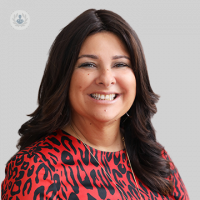Autism and intervention
Written in association with:Autism is more common than most people think, with around 700,000 people living with autism in the UK, that’s more than one in every 100. While it is incurable, it can be managed with the right support and through intervention programs.
Neuropsychologist Doctor Debora Elijah talks about signs of autism to look out for and how intervention programs like PROSCIG © 2013 (Social Cognitive Intervention Program in peer groups) can help children who are autistic.

Symptoms to watch out for include:
- Not responding to their name when called upon
- No or limited eye contact
- Getting upset if they don’t like a certain smell, taste or sound
- Not talking as much to other children
- Playing alone, with the same toy/object
Helping children with autism
The intervention provided at the Elijah Centre is a unique, individualised, holistic approach using a unique program called PROSCIG © (Social Cognitive Intervention Program in peer groups). It is the only program in London that uses a social cognitive approach, with an individualised method that involves all areas of child development. The program is conducted on a day by day basis, over a few weeks to months, depending on how many sessions each individual child needs.
PROSCIG© is a generalist intervention program, divided into three modules of socio-cognitive collaborative learning. It’s made up of a series of structured activities and exercises that are designed to improve a child’s social and communication skills:
- Social perception
- Social problem-solving skills
- Self-monitoring/regulation
Social perception: concerns the ability to absorb, understand and correctly interpret the meaning of information that comes from the psychosocial context and interaction with peers. It’s the basis of social interactions and consists of forming impressions about others. How we perceive situations is related to the social groups of the individual.
Social problem solving: consists of the identification of the existence and nature of a psychosocial problem. It involves determining objectives in each situation, creating alternative possible responses within a group, the prevention of possible consequences and choosing the response likely to lead to positive results. It also involves the planning and execution of the chosen response.
Self-regulation: this is an active process guided by one’s goals and their effort to monitor, regulate and control their thoughts, behaviours and motivation to achieve these goals.
The program is divided into the following groups:
- Children between the ages of 2 - 5 (early intervention)
- Children between the ages of 5 - 11
- Children transitioning from primary school to high school
- Teenagers
- Young adults
Can a child with autism lead a normal life?
Yes, a child can lead a normal life, the quality of their life improves when they receive social communication skills intervention, as published in Dr Elijah's research papers.
Every child is unique and the PROSCIG© pathway addresses each child’s individual strengths and developmental needs. The program builds children’s confidence, assertiveness, self-esteem and increases their levels of cooperation.
If your child has autism/ADHD or social communication challenges and you’d like to talk with a specialist about intervention programs, you can contact Doctor Debora Elijah via Top Doctors.


